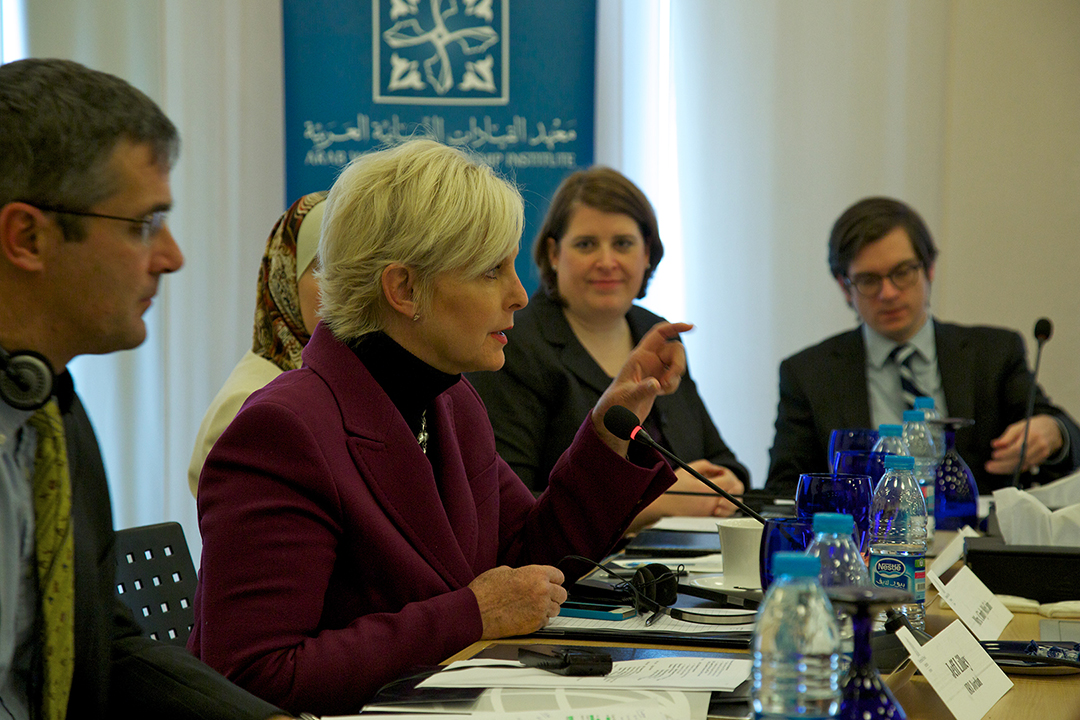McCain Encourages Jordanian Women to be Politically Active and Support Each Other

On a recent visit to Jordan, Cindy McCain, honorary chair of the Women’s Democracy Network Council, met with Jordanian women counseling them to start their political journeys at the grassroots level by running for municipal council or mayor and to, most importantly, support each other, “Women supporting women is the most powerful force in society,” she said.
The group of women, who are participants of the International Republican Institute’s (IRI) Empower initiative and members of the Arab Women’s Leadership Institute (AWLI), included members of Parliament, civil society leaders, municipal councilors as well young women hoping to become active in politics.
Politics for women in Jordan is full of obstacles, particularly those hailing from villages in rural areas. Many face a so-called “culture of shame,” and are made to feel it is inappropriate for them to engage or even take an interest in politics, which is reserved for men and for the tribe. Complicating matters is the fact that women in rural areas find it difficult to travel and find work, a situation made even harder by the influx of nearly 600,000 Syrian refugees.
In speaking to the women, McCain shared her experiences as a business leader and spoke about her work with women leaders around the world. In highlighting the challenges she has faced as chair of her family’s business, McCain said it “has taught me strength I didn’t know I had, the strength to stand up to men and say, ‘No, I have a better idea.’”
McCain added that, “Women have the strength to go beyond conflict. They have a broader view because they are in charge of the family and home.”
Rana Al Ngamish, a participant from Dleil village in Zarqa Governorate shared her story of how she is breaking new ground as a divorced woman who is active in a political party. During the August 2013 municipal elections, when her father forbade her to go out of the house to support a candidate, she worked from her room. “I hid in my bed and made phone calls from under the pillow,” she said.
Ngamish hopes to run for municipal council and she has, over time, by being persistent and using quotations from King Abdullah about the importance of political participation among the youth, has convinced her father to let her be active in politics.
Wafa Bani Mustafa, a member of the Jordanian Parliament and leader of the newly formed women’s caucus, said the turning point in her political career was when she decided to be “the instrument of change,” instead of waiting for others to bring change.
Elected as the youngest member of the 2010 parliament, Mustafa insisted on leadership positions in parliamentary committees and got them. Now she is a leading force behind a movement to repeal a law which allows rapists to go free if they marry their victims. “We have started to open the door [for women to enter politics], and we won’t allow anybody to close it,” she said.
As a result of the meeting the women recognized that a key ingredient for success is setting goals and identifying the steps needed to achieve them. To help them, IRI and AWLI will pair AWLI members, experienced in politics, with young women participating in the Empower initiative.
Top